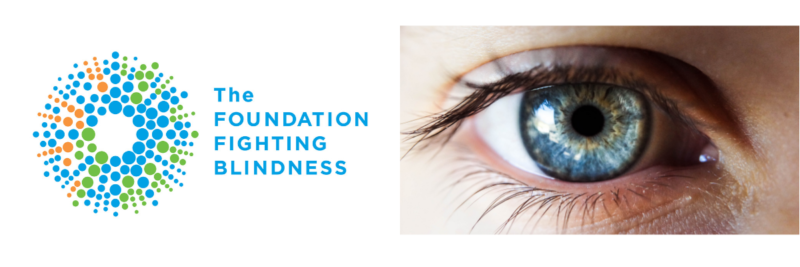Feb 15, 2019
Four New Research Teams Are on the Road to Restoring Sight

Could a future stem cell replacement therapy restore vision to people who are living with blindness? That is Dr. David Gamm’s plan. Dr. Gamm is leading one of four teams that have been awarded funding through the FBC’s Restore Vision 20/20 Initiative, which is funding world-class research projects with the greatest potential to reach the clinic within the next five years.
Restore Vision 20/20 was launched as a $2.5 million initiative to drive the development of new sight-restorative treatments for retinitis pigmentosa (RP). It was made possible thanks to the incredible generosity of Donna Green and her mother Goldie Feldman, as well as significant backing from an anonymous donor.
Predicting how quickly a discovery can move from the laboratory into the clinic is very challenging. The four projects that were selected to receive funding through the Restore Vision 20/20 Initiative had to demonstrate a clear path and plan to move toward a first-in-human clinical trial, which is also called a “phase 1” clinical trial. This kind of research involves risk, innovation, creativity, and a tremendous amount of determination, planning, and collaboration.
We are thrilled to announce the four research teams that will receive funding through Restore Vision 20/20 Each team is laser-focused on developing a new therapy that has the potential to restore vision for those with retinitis pigmentosa (RP), and each shows potential to expand their work to be relevant for other diseases as well.
Dr. Catherine Tsilfidis from the Ottawa Hospital Research Institute was awarded $335,000 over two years to develop her team’s project. Their innovative work is focused on creating a gene therapy that can stop the death of photoreceptors, which are specialized light-sensing cells that are essential to vision.
Dr. David Gamm from the University of Wisconsin-Madison was awarded $800,000 over two years to support his team’s efforts to develop a stem-cell based photoreceptor replacement therapy.
Dr. Philippe Monnier from the Krembil Research Institute was awarded $200,000 over two years to accelerate his team’s project. They plan to develop a sight-saving drug that works by stopping a protein that is linked to the death of photoreceptors.
Dr. Richard Kramer from the University of California, Berkeley was awarded $300,000 over three years to develop a “photo-switch” drug with the potential to restore sight by “switching” cells that are not light-sensitive into cells that are light-sensitive.
We are proud to be funding Dr. Kramer’s research in partnership with the Foundation Fighting Blindness in the United States. We collaborate closely with our friends south of the border to ensure that we are not duplicating efforts and we work together wherever possible, because we share the goal of driving the development of new sight-saving treatments and believe in the power of research, which is an international activity.
The main challenge of completing kind of late-stage translational research is funding. This is because the closer research gets to the clinic, the more expensive the research becomes. Funding is always the main hurdle to moving discoveries forward. Donors can literally change the future by helping to fund vision research that simply would not be possible without their support.
Each exceptionally talented research team was awarded funding because their work has tremendous potential to restore vision to patients living with RP, as well as many other blinding eye diseases! We will be following up with detailed stories about each research team and behind-the-scenes updates about their experiments.
Join the Fight!
Learn how your support is helping to bring a future without blindness into focus! Be the first to learn about the latest breakthroughs in vision research and events in your community by subscribing to our e-newsletter that lands in inboxes the beginning of each month.
